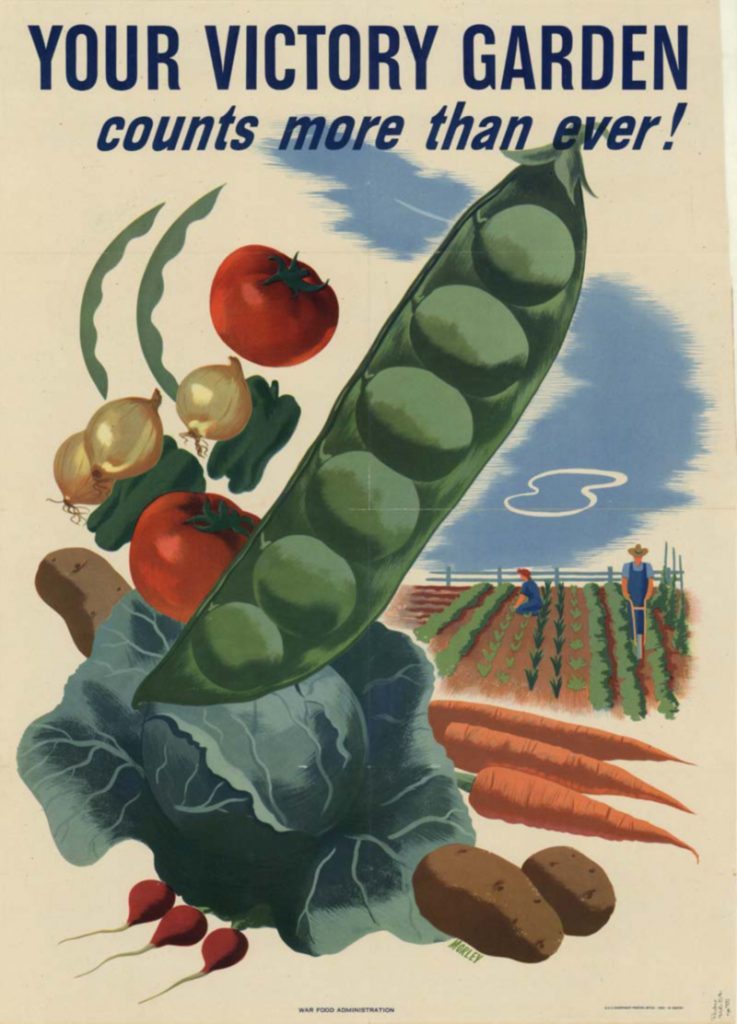 WWII Victory Garden promotion poster.
Wikimedia Commons
WWII Victory Garden promotion poster.
Wikimedia Commons In the early 1940s, why would ten American female basketball players in the heat of competition abruptly halt a match at a university to scour the floor of the gym for one lost bobby pin? Because bobby pins were made of steel, and steel was crucial to the war effort. Rivaling factions aligned around a piece of metal weighing less than an ounce [1]. During World War II, many Allied citizens answered a call to align. Society drove at a gas-saving “victory speed.” “Victory gardens” were cultivated in empty lots and backyards. Neighborhood cooperatives formed. Cooking fat was delivered to collection points. Silk stockings were salvaged. People supposed that even small, ordinary, individual contributions could make the difference between victory and defeat for society [2].
In this issue, our colleagues contended with a broad range of topics around which we align, as a community committed to addressing the impact of technology on society. As we turned the pages, technological impact was addressed from the macro-level of smart cities to the micro-level of the subcutaneous of humans. Our community persists to wrestle with the longstanding issues of privacy and trust, yet in ever more complex systems. We evaluate the contemporary effects of Tower-of-Babel-like confusion between and among diverse stakeholders with competing agendas. We continue to apply time-honored theories, to analyze and design well, the dynamical systems of our times.
Perhaps ours is a community akin to the 1940s neighborhood cooperative. We each contribute, even if our efforts sometimes seem paltry.
At ISTAS 2015, and in this Special Issue, we derived inspiration. We were reminded that history proves, yet again, that success is more probable with coordinated collaborative efforts, as opposed to needless competition among self-interested parties [3]. We were encouraged by the exploration of new frameworks to address technology ethics for a world within which devices will augment, as well as restrict, the power of individuals. We are inspired by smallholder farmers. Despite such a limited physical sphere, these entrepreneurs faithfully cultivate land to yield positive impact on society’s constrained food supply. We envision closing the digital divide, knowing technologies will better equip these formidable contributors.
Perhaps ours is a community akin to the 1940s neighborhood cooperative. We each contribute, even if our efforts sometimes seem paltry. As our individual contributions are marshaled together, we stimulate broad and rich professional dialogue for the victory of society in our rapidly transforming world.
Author
Christine Perakslis is Associate Professor in the MBA Program, College of Management, Johnson & Wales University, Providence, RI. Email: christine.perakslis@jwu.edu.







 JOIN SSIT
JOIN SSIT